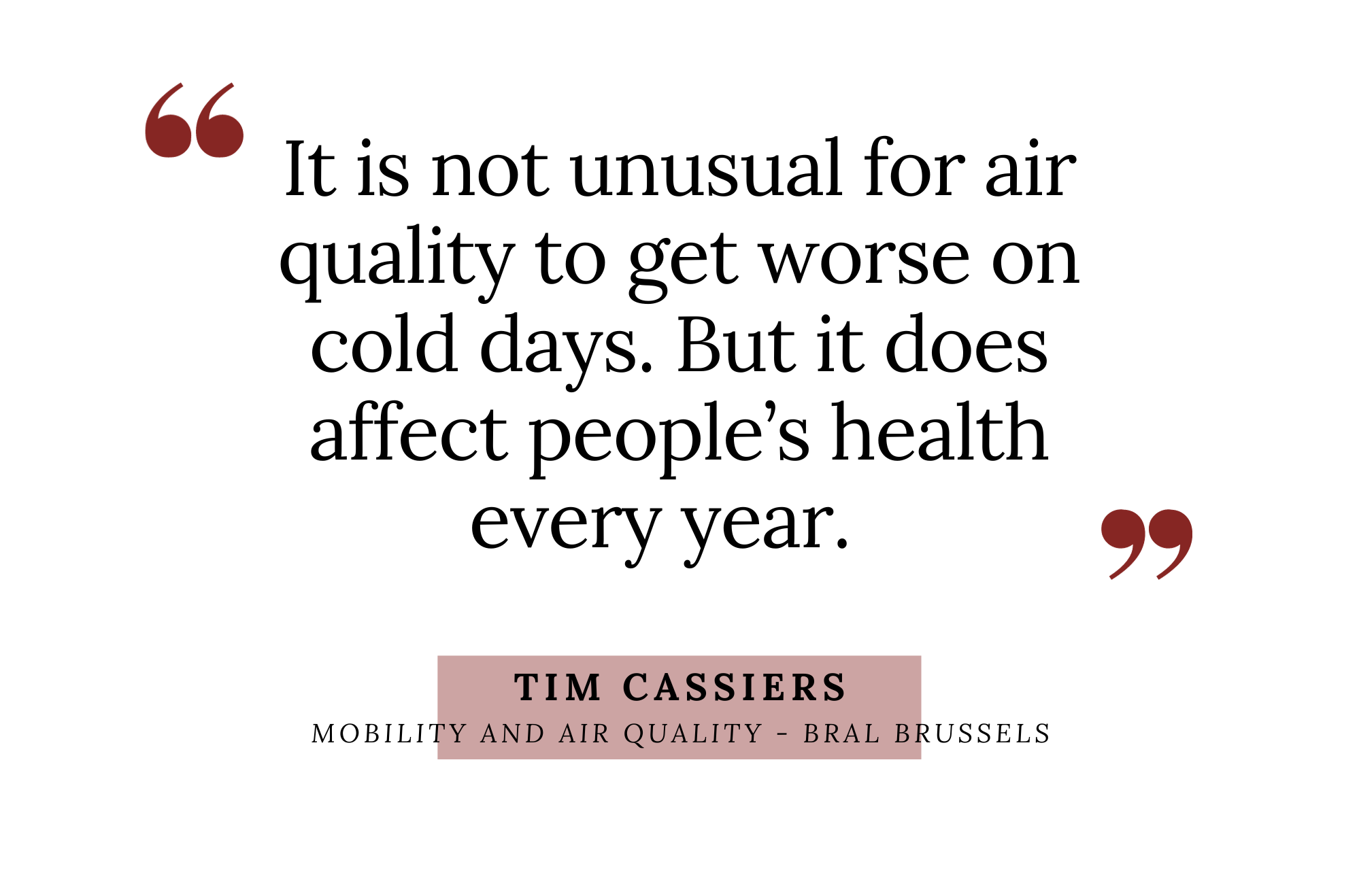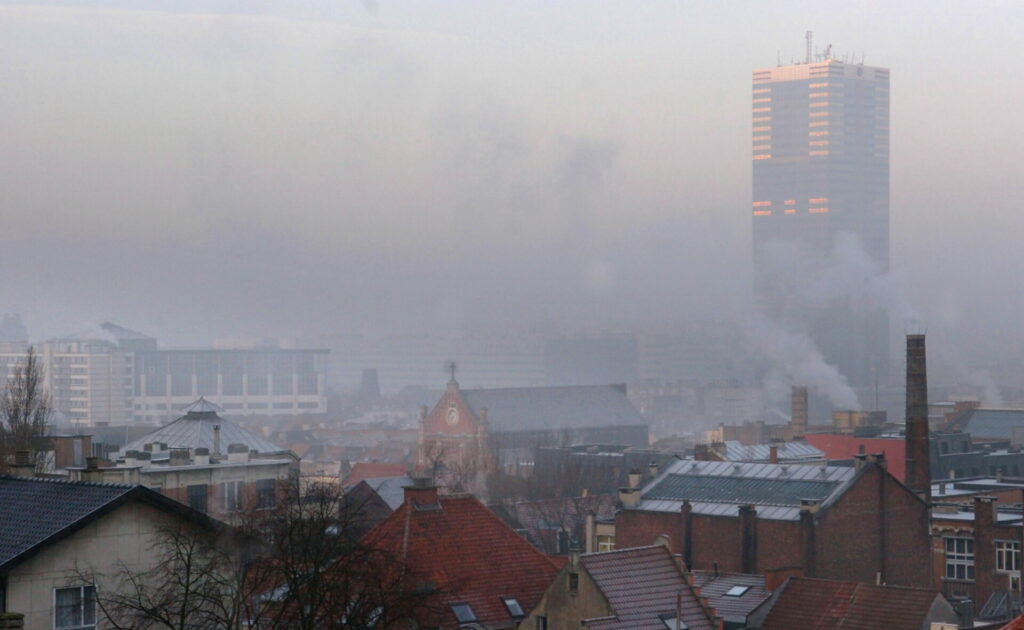Anyone who has braved the cold and walked beside a busy Brussels street recently may have found it harder to breathe due to pollution. The cold plays a role in this, and if sub-zero temperatures persist, it could pose a problem.
Temperatures across Belgium have plummeted in recent days. Frosty conditions can see air pollution levels – caused by the accumulation of pollutants from car exhausts and the heating of buildings – shoot up.
"It is not unusual that on cold days the air quality gets worse," Tim Cassiers, who oversees mobility and air quality at Bral Brussels, told The Brussels Times. "It is not necessarily because there is more pollution, but because it has less 'space' to leave." (Here, he refers to thermal inversion, an atmospheric phenomenon in which a layer of warm air covers a layer of cold air on the ground, creating a 'lid'.)
"Normally the ground-level air is warmer, allowing the pollution to escape upwards. But when the air on the ground gets colder, it prevents pollutants from dispersing in the atmosphere. This results in pollution concentrations going up." Combined with weaker winds, this increases the chances of pollution peaks.
Pollution peak alarms?
While this is not an unusual phenomenon, it does affect people every year. "Vulnerable people suffering from heart or respiratory problems, asthma, and the elderly and very young children are likely to experience problems now," said Cassiers.
However, "healthy" people may also start to feel the effects when doing intensive sports. Symptoms include reduced respiratory functions and cardiovascular problems, as well as respiratory diseases such as bronchitis.
The air quality index published by the Interregional Environment Unit showed that the situation was "very bad" (score 9 with 10 being the worst) in Brussels on Wednesday. On Thursday, this had gone down to "poor" (score 6).
An emergency plan is enforced when the concentration of particulate matter (PM10 /PM2.5) and/or nitrogen oxide (NO2) in the atmosphere reaches certain thresholds.
 Particulate matter or fine dust is currently the biggest problem in the region. When levels of this pollutant exceed the defined limit of 35 µg/m³ and if no wind or rain is expected, the so-called information and sensitisation threshold (threshold 0) is activated. At this stage, vulnerable people are advised to stay inside where possible and to avoid exercise.
Particulate matter or fine dust is currently the biggest problem in the region. When levels of this pollutant exceed the defined limit of 35 µg/m³ and if no wind or rain is expected, the so-called information and sensitisation threshold (threshold 0) is activated. At this stage, vulnerable people are advised to stay inside where possible and to avoid exercise.
At all levels (thresholds 0, 1 and 2), public transport in the region is free to encourage motorists to choose modes of transport other than the car. During the second day of threshold 2, a driving ban is enforced throughout the region. "But we are a long way from that now."
"We are now at 32 or 33 µg/m³ in Brussels so it could probably go off, unless it gets warmer again now or if there is wind," Cassiers said.
Protecting the vulnerable?
While weather conditions on Wednesday and Thursday were not conducive to pollutant dispersion, the thresholds for PM10 and PM2.5 from the "pollution peak" plan were not reached in the Brussels Region, Judith Verbist, spokesperson for Brussels Environment, confirmed to The Brussels Times.
"From Friday and Saturday, weather conditions are likely to be slightly more favourable for dispersion, thanks to an increase in the base of the thermal inversion to 800 m altitude," she said. This rise has already lowered PM2.5 and PM10 concentrations. The situation will further improve on Sunday and Monday, as the thermal inversion will completely disappear. West-to-northwest winds will bring less polluted air to the region.
However, Cassiers stressed that the reduced thresholds of the World Health Organisation (WHO) were surpassed, meaning vulnerable groups were facing problems, and no action was taken. "This raises questions about whether we are activating the information and sensitisation threshold at the right time."
"Of course, you don't want everyone to panic, but we should ask ourselves whether the current threshold is effective for those needing the information. These vulnerable people should have protected themselves in the last few days, even though the official threshold wasn't surpassed," Cassiers concluded.

